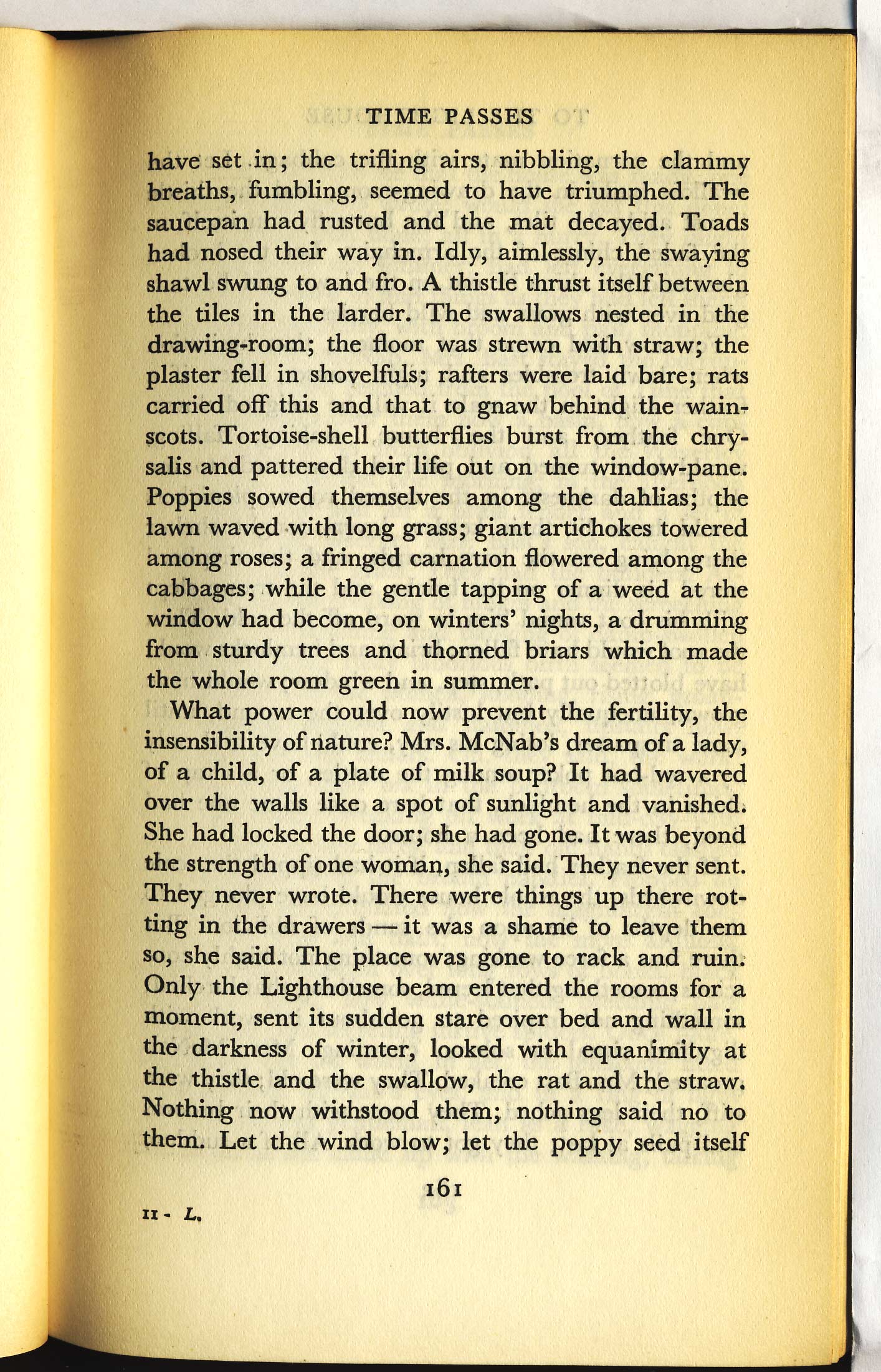Slide to View Image: Opacity 0%

TIME PASSEShave set in; the trifling airs, nibbling, the clammybreaths, fumbling, seemed to have triumphed. Thesaucepan had rusted and the mat decayed. Toadshad nosed their way in. Idly, aimlessly, the swayingshawl swung to and fro. A thistle thrust itself betweenthe tiles in the larder. The swallows nested in thedrawing-room; the floor was strewn with straw; theplaster fell in shovelfuls; rafters were laid bare; ratscarried off this and that to gnaw behind the wain-scots. Tortoise-shell butterflies burst from the chry-salis and pattered their life out on the window-pane.Poppies sowed themselves among the dahlias; thelawn waved with long grass; giant artichokes toweredamong roses; a fringed carnation flowered among thecabbages; while the gentle tapping of a weed at thewindow had become, on winters’ nights, a drummingfrom sturdy trees and thorned briars which madethe whole room green in summer.What power could now prevent the fertility, theinsensibility of nature? Mrs. McNab’s dream of a lady,of a child, of a plate of milk soup? It had waveredover the walls like a spot of sunlight and vanished.She had locked the door; she had gone. It was beyondthe strength of one woman, she said. They never sent.They never wrote. There were things up there rot-ting in the drawers — it was a shame to leave themso, she said. The place was gone to rack and ruin.Only the Lighthouse beam entered the rooms for amoment, sent its sudden stare over bed and wall inthe darkness of winter, looked with equanimity atthe thistle and the swallow, the rat and the straw.Nothing now withstood them; nothing said no tothem. Let the wind blow; let the poppy seed itself16111 - L.









